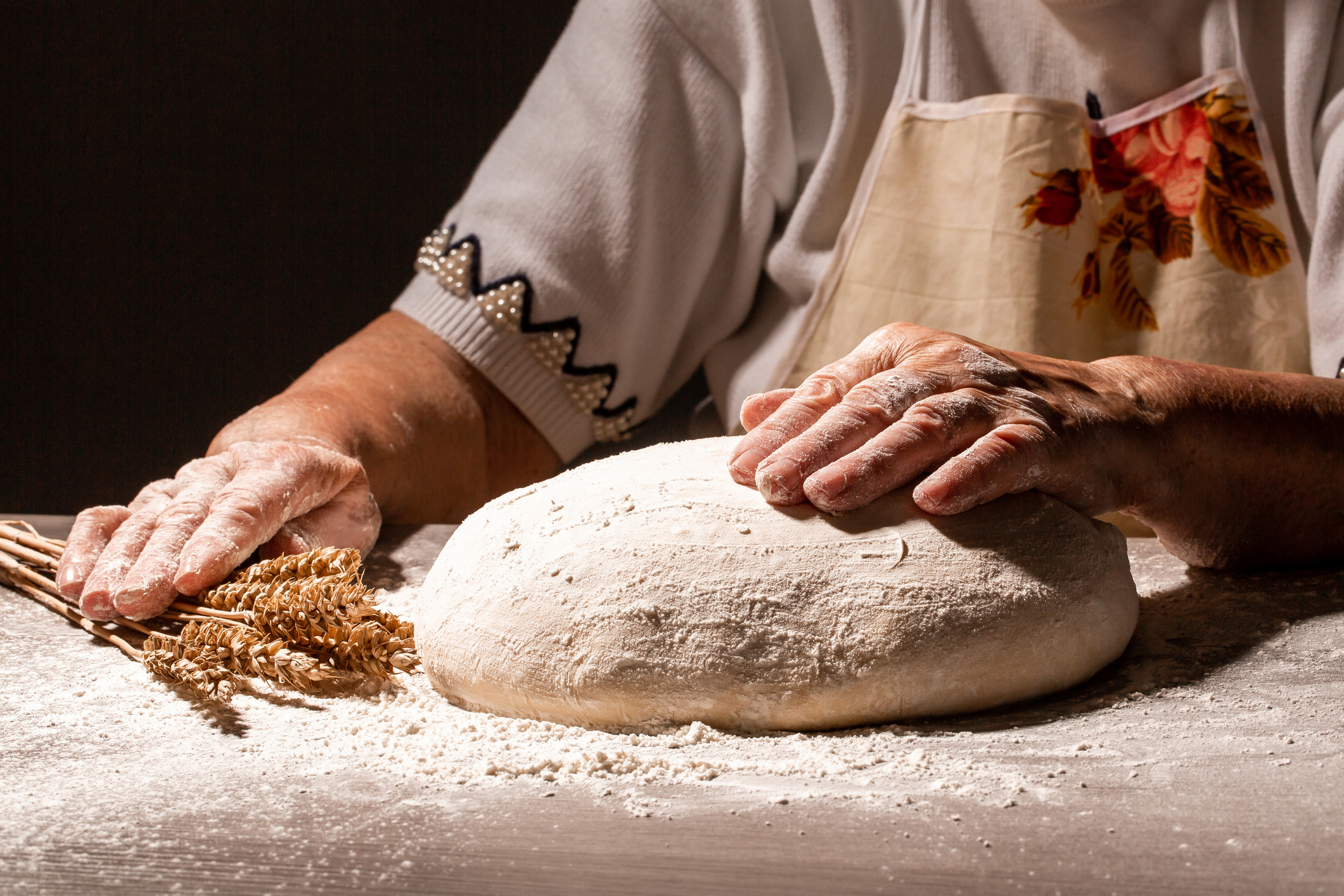
I can still remember the gentle resistance to the clear drinking glass rim as I pressed it through the soft biscuit dough. Then the hard “clack” as the glass struck the countertop. The child I was knew the fledgling biscuit was cut, almost perfectly round.
My younger brother and I were in my grandmother “Lady’s” bright white tile Texas kitchen, with the woman I knew as “Julia” instructing. Julia had shared her cooking, wit, and wisdom with my family for many years, and was probably already well into her 70s on that bright summer day over 50 years ago.
Julia taught my brother and I to make pie crusts too, cutting the dough into strips, interlacing those strips at 90 degree angles to each other across the soft sweet apple pie filling mounded up in the pan, fluting the dough edges, then sprinkling the top with white granulated Imperial “Pure Cane” sugar.
With hands held up, fingers splayed wide, framing her face feigning delighted surprise, Julia called my grandmother over to view our edible art. “Look, look Marie!” “Look at what the boys have done!” My dramatic grandmother Lady then walked over with her own best surprised look arrayed across her face, exclaiming “Julia, I did not know these boys could create such beautiful pies…!”
Fast forward 50 years. It will be a hot day today in Winston-Salem, North Carolina as July ambles into view. It’s Saturday, and I am ambitiously planning (with help from some young people neighbors) planting some sun loving flowers out front. Almost July is not normally the best time to plant ornamentals, but I’m still pretty sure that these daylilies are going to make it.
“If you are going to put a pretty plant in your yard, you should choose a hardy plant!” I remember Lady advising me. She was fond of relocating attractive specimens (already locally adapted to the South Texas heat) from the rural family ranchland, lovingly replanting them into her own yard in town.
My daylily bulbs (that I have not gotten around to permanently planting yet after they arrived mail order this spring) are already thriving in the plastic outdoor holding box, within the peat moss where my wife temporarily planted them. They are, as my grandmother taught me, “hardy.”
University of California, Berkeley psychology and cognitive development professor Dr. Alison Gopnik wrote recently in her Wall Street Journal “Mind and Matter” column about the paradox evolutionary scientists face when exploring why it has been so important for humans, throughout our time on Earth, to care for our elders for so long, even when younger members of our clans take over the heavy family work as elder bodies age.
Gopnik asks that If humans are shaped by genetic evolution (“survival of the fittest”), why did we evolve to be so vulnerable for such a long period of our lives as we age?
New thinking postulates an intriguing but simple answer.
In a recent special issue of the Philosophical Transactions of the Royal Society, co-edited by Dr. Gopnik, Dr. Michael Gurven from the University of California at Santa Barbara argues that older people have a special place within human evolution. Many human foraging skills require years of practice. Hunters and fishers don’t reach their peak until they are in their 30s.
Dr. Gopnik notes that “it’s hard though to actively practice a skill and teach it to someone else at the same time (Sunday pancakes take twice as long when the kids help).” Dr. Gurven and his team found mathematically, however, that the best evolutionary strategy for developing many complex skills, is to have the old teach the young. That way, the peak, prime of life performers can focus on getting things done, while young learners are matched with older, very wise and experienced (but less physically productive) teachers.
Here we are now in mid-2020, with a dangerous virus disproportionately threatening our elders. We can bring this virus home to them unwittingly, without knowing. It’s not really that hard for most of us to social distance when in public, to wear a mask, until there is a vaccine, or some reliable cure. It’s not about autonomy, independence, politics, or convenience. It’s about love and caring, remembrance and thankfulness.
And it’s about valuing our elders the way the best-adapted members of our species have always done, throughout human history.
